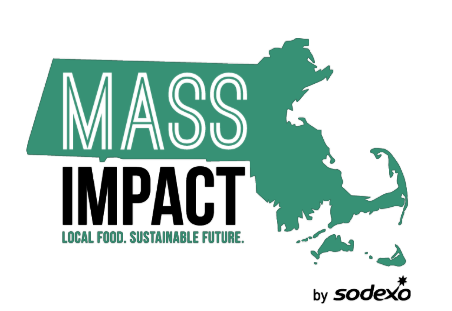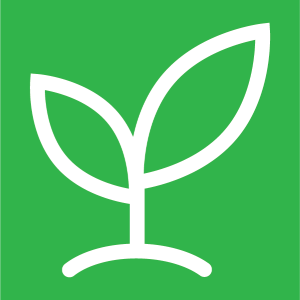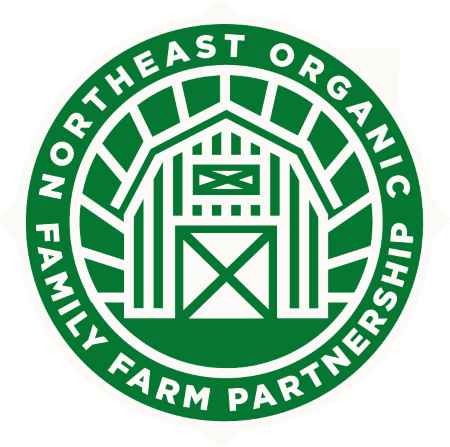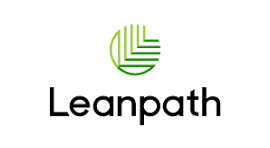

State Program & Mission Statement
Value Statement
At Sodexo, Mass Impact reflects our commitment to strengthening local and regional communities by supporting inclusive economic opportunities for small-scale farms, fisheries, and food businesses, including those from underserved populations.
We Strive To:
- Create equitable pathways for employees to build careers in the food system.
- Promote environmental sustainability through the purchase of local, seasonal, and regional foods and seafood.
- Champion responsible resource management by ensuring food is used for its highest and best purpose.
- Foster a resilient and diverse regional food network through collaboration and shared impact.
Our Definition of Local
Click Enter to see the detailsAgricultural products are local if it is:
- Exclusively grown or trapped in Massachusetts
- Derived from an animal that was raised for at least one-third of its life in Massachusetts (except milk)
- For milk, a majority was produced from Massachusetts animals
- Honey produced by Massachusetts colonies located exclusively in Massachusetts when all nectar was collected
Processed foods are local if:
- 50% or more of all product ingredients by volume (excluding water) are raw agricultural products that are local to Massachusetts and
- Either processed or the food manufacturer is headquartered in Massachusetts Unique food products are local if two or more of the following are true:
- 50% or more of all ingredients by volume (excluding water) are raw agricultural products that are local to Massachusetts
- Substantial transformation of the ingredients in the product occurred in Massachusetts
- The headquarters of the company that manufactures the product is in Massachusetts
Our Definition of Regional
Click Enter to see the detailsFood grown, raised, or harvested within the six New England states (+50 mile radius)
Agricultural products are regional if:
- Vendor of the product is a regional food business and 100% of the ingredients were grown, raised, or harvested on farms within the six New England states plus 50 miles.
Processed and unique foods are regional if:
- Vendor of the product is a regional food business and at least 50% of the ingredients were grown, raised, or harvested on farms within the six New England states plus 50 miles (for example: broccoli soup, in which the broccoli and dairy were sourced regionally and equal 50% or more of the ingredients).
Responsible Sourcing
Sustainable Seafood
Click Enter to see the details
- 100% sustainable seafood partnership with Red's Best
- Red’s Best aligns closely with Sodexo’s commitment to responsible sourcing and sustainability. At Sodexo, we prioritize partnerships that support local economies, reduce environmental impact, and promote transparency across the supply chain. Our alliance with Red’s Best strengthens these values by sourcing local, traceable seafood that supports small-scale fishermen and underutilized species. Through their innovative tracking system and supply-driven model, Red’s Best helps us reduce food waste, lower carbon emissions, and provide our guests with fresh, sustainable seafood, while advancing our shared mission of building a more equitable and resilient food system.
Fair Trade
Click Enter to see the detailsSodexo is committed to fair and responsible trade as part of its Better Tomorrow 2025 strategy, which includes promoting local development and sourcing practices that are fair, inclusive, and sustainable. As a global food service provider, we recognize the impact of our purchasing and have committed to sourcing responsibly to reduce carbon emissions and support farming communities worldwide.
Through partnerships like the Sustainable Coffee Challenge with Conservation International, Sodexo pledged that 100% of coffee served in our proprietary brands and 99% of retail coffee be responsibly sourced. Fair Trade certification supports these goals, and we continue to expand our offerings of certified products that promote environmental stewardship and social equity.
Cage Free
Click Enter to see the detailsSodexo is firmly committed to sourcing 100% cage-free eggs globally including shell, liquid, and processed egg as part of our Better Tomorrow 2025 sustainability strategy. This commitment, made in partnership with leading animal welfare organizations such as Compassion in World Farming, Humane Society International, and The Humane League, reflects Sodexo’s dedication to responsible sourcing and improved animal welfare. Progress is tracked through regular, transparent reporting, and Sodexo is actively working with suppliers across more than 80 countries to transform supply chains and ensure availability.
Responsible Supply Chain
Click Enter to see the detailsSodexo is committed to building a responsible supply chain that supports environmental sustainability, ethical practices, and local economic development. Guided by its Better Tomorrow 2025 strategy, Sodexo prioritizes sourcing practices that reduce carbon emissions, promote animal welfare, and ensure fair treatment of workers across the supply chain. Through strong supplier partnerships and global initiatives—such as its commitments to cage-free eggs, sustainable seafood, and Fair Trade coffee, Sodexo aims to create a more transparent, inclusive, and resilient food system.
Plant Based
Click Enter to see the details
Sodexo is deeply committed to promoting plant-forward dining and reducing its environmental impact. As part of its Better Tomorrow 2025 strategy, Sodexo’s Campus division has pledged to ensure 50% of menu items are plant-based. This shift aims to cut the company’s carbon footprint—70% of which stemmed from animal-based food purchases in fiscal year 2020, by 34% by 2025 . Sodexo is working closely with partners like the Humane Society of the United States and the Better Food Foundation, using behavioral strategies such as its Default Veg approach to make plant-based meals the norm. In healthcare settings, Sodexo has expanded its plant-based default menus across thousands of hospitals in collaboration with Greener by Default, leading to significant reductions in greenhouse gas emissions and positive shifts in patient meal choices . Overall, Sodexo’s 50% plant-based menu commitment reflects its holistic approach to sustainable eating, combining innovation, partnerships, and strategic nudges to drive meaningful dietary change and climate impact across our services.
https://us.sodexo.com/corporate-responsibility/impact-on-environment/sustainable-eating
Our Vendor Partnerships
Northeast Organic Family Farm Partnership
Sodexo is proud to sign on as a Northeast Organic Family Farm partner to support organic dairy farms in the Northeast and to help secure the future of organic dairy. We’re committed to purchasing organic dairy products from brands that source their milk from our region. Learn about our commitment and the partnership by visiting www.saveorganicfamilyfarms.org

Waste Diversion
Composting
Click Enter to see the detailsFood waste in landfills creates methane, a greenhouse gas which is 21x more potent than CO2. (www.epa.gov) Our first priority is to reduce food waste. We compost food waste that is unavoidable which reduces greenhouse gas emissions and can also be used to amend soil thereby increasing drought tolerance, improving soil structure and health and reducing need for water and fertilizers.
Recycling
Click Enter to see the details- Recycling reduces waste sent to landfills and incinerators.
- Recycling prevents pollution.
- Recycling conserves natural resources.
- Recycling conserves energy.
- Recycling creates jobs, producing economic benefits.
Sodexo is firmly committed to reducing waste through comprehensive composting and recycling practices as part of its Better Tomorrow 2025 sustainability strategy. Globally, Sodexo implements robust recycling programs accepting paper, cardboard, plastics, glass, and metals and leverages reusable dishware, trayless dining, and digital communication tools to minimize disposable materials. Composting is prioritized for unavoidable food waste: Sodexo partners with vendors in various regions (e.g., Suez Group, Les Alchimistes, Blue Earth Compost) to divert organic waste to composting or biogas conversion, significantly cutting methane emissions and enriching soil health. Additionally, Sodexo deploys its proprietary WasteWatch® by Leanpath program to measure and reduce kitchen food waste in real time, facilitating food recovery, donation, and process improvements to dramatically lower waste and carbon impact.
Leanpath
Click Enter to see the details
Our kitchens use WasteWatch powered by Leanpath systems. This allows our culinary teams to monitor and track our food waste while we prepare your meals. By using Leanpath, we are able to easily identify causes of food waste in real-time and make necessary adjustments to our procedures to help combat food waste.
Harvest of the Month & Crop Planning
Click Enter to see the detailsSodexo’s Harvest of the Month program highlights seasonal, locally sourced produce each month, helping students connect with where their food comes from while supporting regional agriculture. Through this initiative, Sodexo is projected to source over 25,000 pounds of produce during the academic year—directly from local farms. This predictable, planned purchasing helps farmers build crop plans with confidence, ensuring stable demand and reducing food waste. By prioritizing local procurement, the program strengthens our regional food system, supports small and mid-sized farms, and reinvests in the local economy, while offering fresh, nutritious options to the campus community.
Food Recovery
Click Enter to see the detailsSodexo is deeply committed to fighting food waste and hunger through strong food recovery partnerships across all of our accounts in the Northeast. By working with trusted organizations like Haven’s Harvest, Rescuing Leftover Cuisine, Food Rescue US, and the Food Recovery Network, we ensure that surplus, safe-to-eat food is redirected to local communities in need. These collaborations not only help reduce our environmental footprint but also make a meaningful social impact, ensuring that nutritious meals reach individuals and families facing food insecurity.
Additional Sustainable Practices
- 100% recycled paper napkins in XprssNap Dispensers to encourage guests to take few napkins.
- FiltaFry - Recycling thousands of pounds of waste oil into biodiesel every year.
- Reusable dishware
- Trayless Dining
- Green certified cleaning supplies
- Bulk condiments
- On/Off protocols for our equipment
- Energy Star appliances
- Green-to-go programs where applicable
